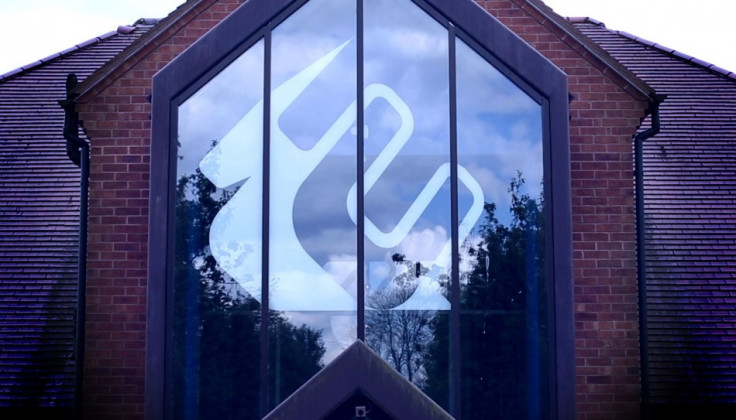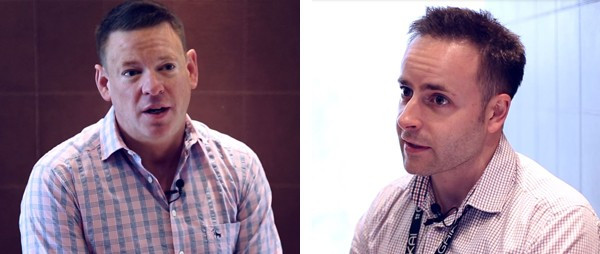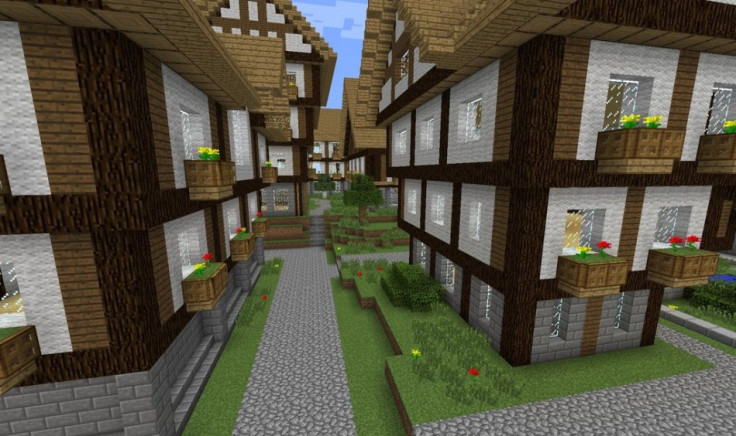Game Studio Spotlight: Codemasters [VIDEO]

The reception area of Codemasters HQ screams "industry staple." In every corner of the room, there are glass cabinets filled with BAFTAs, Golden Joysticks and Company of the Year awards. On the walls are gold discs for games like Colin McRae Rally, Prisoner of War and TOCA, framed above certificates recognising 500,000 or 1 million sales. Walking from one side of the room to the other is like a quick guided tour of the history of British games; founded in 1986, it's a history Codemasters has always been a part of.
Two brothers, David and Richard Darling, originally ran the company from the converted livery stable of their father's farmhouse. Today, thanks a long series of extensions (the stables still form part of the offices) the Codemasters headquarters in Southam, Warwickshire house over 500 employees. Along with offices in Birmingham, Solihull and even Kuala Lumpur, the company employs almost 1,000 people. Steve Hood, creative director on the company's Formula One series, says knowing how to manage so many people is Codemasters' key strength:
"You can't imagine that a group of 400 or 500 people have the same skillsets or backgrounds; you can't say that, wholesale, to get this game out, we're going to need another 50 people because then you're just treating people as robots. One of the good things we have in Codemasters is we're very able to define what people's skills are and swap them between projects if we need to. It is a very big operation to get games out these days."
Especially if you are Codemasters. The studio's bread and butter is in racing games like the licensed F1 sims, but it's also a publishing house, and has multiple teams working on different projects for different platforms. You might know Codemasters for racers like GRID, DIRT and - going way back - BMX Simulator, but this is also the company that turned out Overlord, Operation Flashpoint and Dizzy The Egg. A lot of big studios follow the John Ford ethos of "I'm John Ford and I make Westerns"; Codemasters produces a lot of different things.

"We're not a work-for-hire studio that takes orders from a publisher," says communications director Rich Eddy. "We design, create, do our own research - it's what the team here believes, combined with our own research, which dictates our direction."
"I think naturally in the British game industry there are a lot of motorsport fans," says Hood. "We've been raised that way. But one of the strengths you've got at Codemasters, since we've been around for a long time and on lots of different platforms, is as a new machine comes out, we're already looking into it. It is a challenge because it means a lot of work, but its a challenge we relish."
Homespun
British game studios today need this kind of flexibility. Long gone are the days of Jeff Minter and Matthew Smith building indigenous little hits in their houses. Games are global now, and homespun kitchen sink Britishness doesn't quite wash anymore.
"These days videogames are worldwide," says Eddy "it's a truly international business. You can't just look at what those guys down the road are doing. You can't even just look at what's happening in America or Japan - you need to look at China, India the different models and markets.
"Look at Minecraft or Angry Birds. Any one person can change the model. But not knowing where that challenge will come is one of the great things about working in videogames. No-one's ever been able to write the videogame rulebook. It constantly changes - the technology, the way people play games constantly changes. That's what makes it so much more exciting than the toy industry."

So what can be done to make that challenge easier? A proposed initiative of tax breaks for UK game studios has been proposed by the government but is now floundering amidst an inquest from the EU. The ICT curriculum in Britain is also under reconstruction, though basic lessons on Microsoft Office still take prominence in the classroom over skills like coding and design. Canada, with its low tax rates, is now the safe haven for game companies; Next-Gen, the review of computer science lessons pioneered by Ian Livingstone, is still being implemented.
That leaves studios paying extra to develop on British soil and looking for development talent from overseas.
"In the UK certainly we can feel the pressure from other companies that operate in other countries," says Hood. "There are more developers going to Canada with the tax advantages there. How do you compete with that? You're already at a disadvantage if you're having to pay out of your way to develop in the UK and hire UK students.
"Most large developers look globally for the best talent but certainly for us it'd be easier to bring in people from the UK. It's easier to bring them up to speed, get them a UK contract and of course they speak the same language. Whilst we are multi-national in terms of development, it's our preference to get people from the UK because they come from the same development background."
Hood adds that the government should be listneing to them, and not other politicians: "Companies like Codemasters can be a guide [to the government] and say this is the kind of candidate we'd like but it requires greater forces than a company like ours. We're trying to fight and we're doing well but we could be doing so much better."
Legitmacy
It is moving, slowly. MPs like Ed Vazey, and institutions like the Royal Academy of Engineering have put forward cases for leaner tax rates and different IT lessons. Thanks to the rise of phones, tablets and social networks, the profile of computer games has been raised. Along with it, British game studios will hopefully benefit.
"There's been a perception for some year that games were something young boys did in their bedrooms when they should be out enjoying fresh air," concludes Eddy. "I think we've changed that; there's a bigger level of understanding.
"Games now are taken very seriously. They are part of everyone's entertainment make-up today. We want them sat alongside films, music and television."

A company of some 30 years now, Codemasters is testament to the legitimacy of computer games as an industry. The studio has been chiefly responsible for the formation of "Silicon Spa", a cluster of game studios all based in Leamington. Sega has offices there now, as does Forza Horizon-maker Playground Games. In 2012, business secretary Vince Cable met David Darling there to discuss the expansion of British games. Four years earlier, both the Codemasters founders were awarded CBEs.
If you needed proof games could form a part of Britain's economy, as well as its cultural heritage, Codemasters, in Southam, would be a pretty good place to look.
Watch the full feature video here

© Copyright IBTimes 2025. All rights reserved.






















